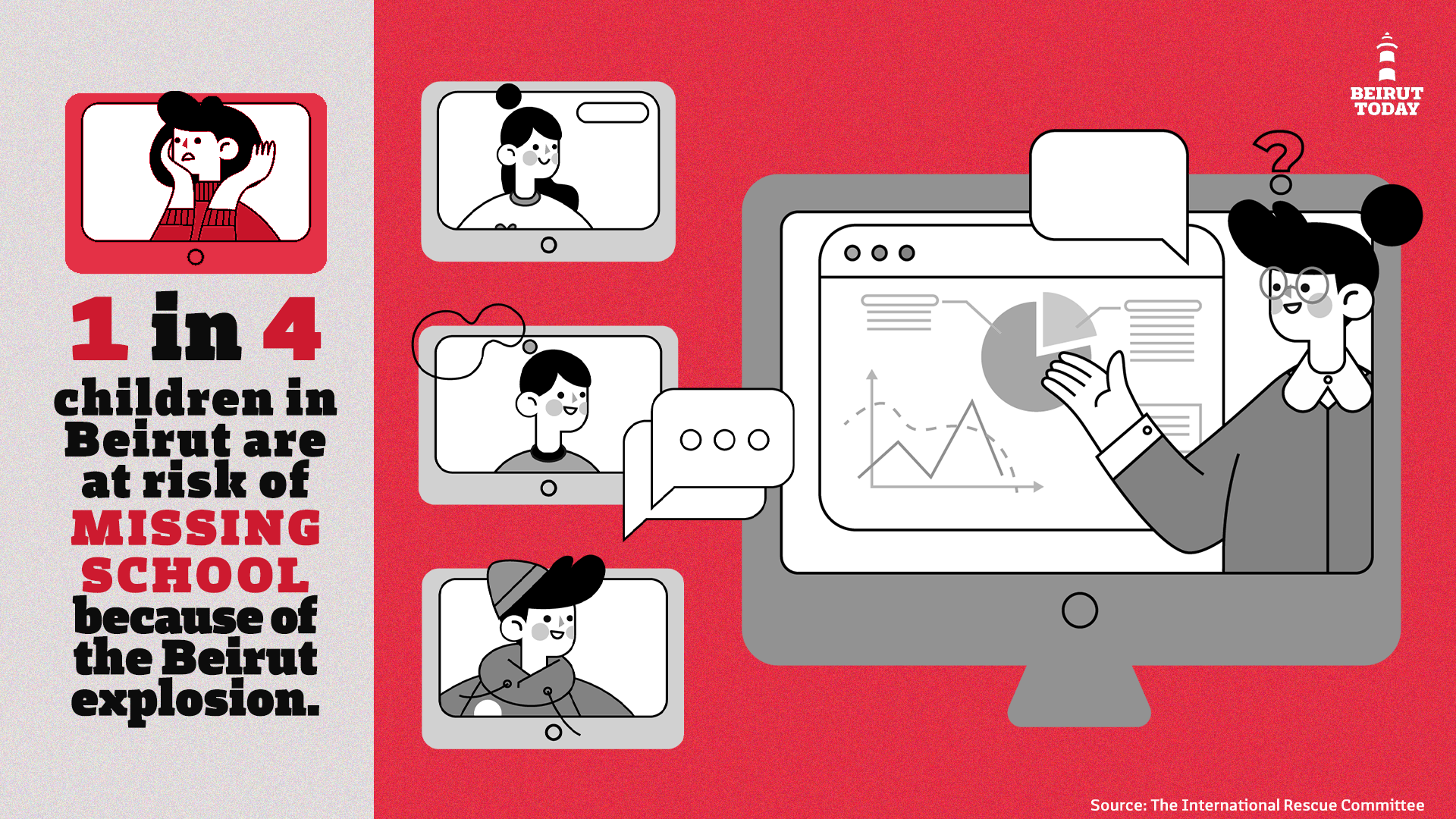The International Rescue Committee (IRC) has warned that 1 in 4 children in the city of Beirut are now at risk of missing out on their education.
The academic year is now set to begin in mid-October, but the Beirut blast has effectively left 163 schools damaged, many of which will take up to one year or more to be repaired.
Over 85,000 students are registered at the schools damaged by the explosion. The Ministry of Education is working on finding these children new schools, but as they seek an education elsewhere, they are faced with a number of issues concerning finances and transportation.
The Ministry of Education may well be able to find these students new schools, but this does not guarantee that these new schools will be affordable or close-by. As schools in Beirut grow beyond their capacity, many affected children will be forced to attend school outside of Beirut.
This entails longer distances to travel, adding extra transportation costs to families already spread far too thin. For lower income households, this is an expense they cannot afford to take, forcing them to forgo on their children’s education.
Those who do insist on seeing the matter through will probably opt for public transportation as a cost-efficient way to get their children to campus. As Lebanese public transport is notorious for its rundown infrastructure and poor services, children then face a new risk: Harassment.
This not only endangers children physically, but also risks affecting them mentally as they may choose not to pursue it again, even at the expense of their education.
Additionally, with the COVID-19 pandemic etching itself deeper into Lebanon comes an added safety risk: Overcrowded schools may entail less social distancing measures and possible high rates of infection.
Some solutions for the issue have come up, such as guaranteed transport to and from campus via school busses, setting up temporary education centres for those affected by the blast, and instating counsellors to follow-up on children affected by PTSD. However, the government has yet to install any form of substantive support.
Should the government continue to neglect this issue, then the new academic year will witness a great amount of drop-outs as education becomes more inaccessible.


